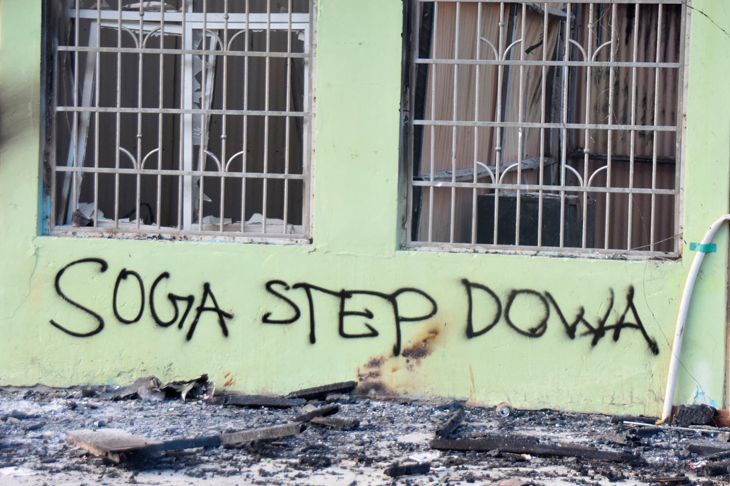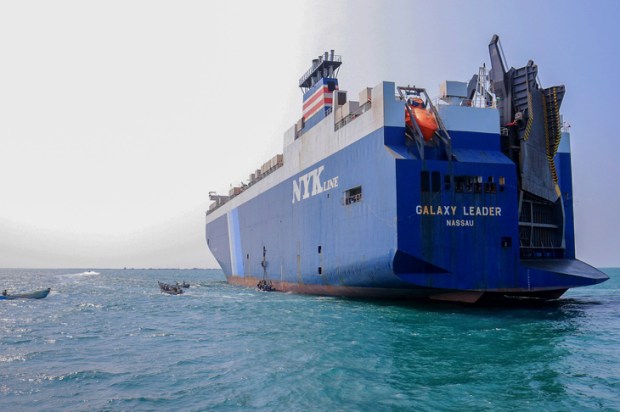The recently signed security pact between the Solomon Islands and the People’s Republic of China is a shot across Australia’s bow. It warrants a thorough reassessment of security strategies and policies to ensure Australia’s sovereignty and prosperity.
Former Chinese premier Zhou Enlai observed that ‘one of the delightful things about Americans is that they have absolutely no historical memory’. This appears to apply equally to Australians.
During the second world war, Imperial Japan proposed to invade Australia. Realising the difficulty, Japan instead sought first to isolate Australia by advancing through the South Pacific. The Solomon Islands campaign commenced with the Japanese occupation of several areas in the Solomon Islands and Bougainville in Papua New Guinea where Japan worked to build naval and air bases. One of Japan’s key objectives was to disrupt supply lines between the US, Australia and New Zealand.
This same risk of isolation applies today as it did eighty years ago and should not be understated. Now as then, Australia’s key eastern shipping lanes pass through the Coral Sea and in proximity to the Solomon Islands. These sea lanes are highways not just for Australian exports but also for key imports, including of fuel, fertiliser and machinery.
Australia imports more than 90 per cent of its fuel and holds reserves of only 30 to 60 days. Fuel that powers not just cars, trucks and tractors, but also tanks, jets and submarines. Australia similarly imports over 90 per cent of its urea fertiliser, essential for food production. Interruptions to Australia’s key sea lane highways could cause great damage quickly.
In the event of a regional conflagration, Australia’s navy would need to pass through this area to travel north and the US Navy to travel south. This is particularly worth considering given that former prime minister Malcolm Turnbull recently suggested that China might make an aggressive move on Taiwan in early 2024 following the Taiwan elections. Additionally, the new submarine base proposed by the Morrison government could be well within missile range of the Solomon Islands.
As Australia’s strategic environment continues to deteriorate, Australia is increasingly reliant on a progressively unpredictable America for its security. Whilst easy and part justifiable to blame the Australian government for this foreign policy fumble, it overlooks the prevarications of the US.
In 2012, US President Obama announced his ‘Pivot to Asia’, yet in the ten years since, there has been mostly rhetoric with little outcome. This includes the lack of a US embassy in the Solomon Islands for near 30 years, having closed it soon after the end of (the first) Cold War.
Meanwhile, China has reclaimed and militarised islands in the South China Sea, invested to deepen its relationships with South Pacific nations and Papua New Guinea, and continues to develop its rapid force projection capabilities so as to ‘hasten(ing) the transition from regional defense (sic) to full area operations’. Australia in this same period has wasted billions of dollars and vital time on failed naval capability developments and has rotated through eleven ministers of defence in twenty years.
China’s South Pacific opening was facilitated by years of Australian government underinvestment in South Pacific relations and a precedent has now been set opening the door for similar security pacts with other South Pacific nations.
Like a failing marriage, Australia’s relationship with the region did not erode overnight. In nine years of Coalition government, Australia has had five ministers for international development and the Pacific, none lasting more than two and half years, and one for a brief five months.
From a game theory perspective, the Solomon Islands has played its cards shrewdly. Australia is the Solomon Islands’ largest source of foreign aid providing over $150 million every year. This pact will no doubt ensure that Australian contributions will only increase. It has also attracted the belated attention of the United States who too will now likely offer financial inducements.
When it comes to international relations, there is no monopoly on the legal use of force. On the contrary, where once there was an oligopoly led by the United States, there is now increasing competition with post-1945 compacts around national security and sovereignty eroding. The strong will do what they can and the weak will suffer what they must.
Following Russia’s invasion of Ukraine, commentators and analysts looked for reasons to explain why Russia acted to initiate the largest post-World War II military incursion. Simple explanations such as Russia’s knowledge that Nato and the US were unwilling to intervene were discounted for more complex hypotheses. Many jumped for the John Mearsheimer analysis that Nato’s eastward expansion and membership discussions with Ukraine provoked Russia.
Mearsheimer’s analysis implies that smaller nations should subjugate their foreign policies to that of larger and (relatively) more powerful neighbours. The parallels between Russia-Ukraine and Australia-Solomon Islands seem evident, but fortunately followers of the Mearsheimer view are yet to advocate for an Australian or US invasion of the Solomon Islands.
In some respects, Australia should be grateful to the Solomon Islands for the wake-up call. The Solomon Islands and China security pact has again highlighted Australia’s geographical and national security vulnerabilities. Vulnerabilities that have been recently discounted but require permanent vigilance. They may also require unconventional policy responses.
In his election manifesto, UAP leader Clive Palmer has proposed a 15 per cent licece fee on all Australian iron ore exports for the purpose of national debt retirement. Consideration should instead be given to using such revenues to enhance Australia’s defence spending beyond the targeted 2 per cent of GDP and to enhance foreign aid and other diplomatic efforts. After all, if as Lenin said, ‘the Capitalists will sell (us) the rope with which we will hang them.’, then at least let the Communists contribute something.
Got something to add? Join the discussion and comment below.
Get 10 issues for just $10
Subscribe to The Spectator Australia today for the next 10 magazine issues, plus full online access, for just $10.
You might disagree with half of it, but you’ll enjoy reading all of it. Try your first month for free, then just $2 a week for the remainder of your first year.














Comments
Don't miss out
Join the conversation with other Spectator Australia readers. Subscribe to leave a comment.
SUBSCRIBEAlready a subscriber? Log in